Manage
your agency
more efficiently
Optimize your organization: Furious facilitates collaboration in project management and invoicing, and boosts your profitability.
A tool designed by and for creatives.
Adapt your processes with a platform that understands the unique challenges of the agency sector.
Simplify project management, improve team collaboration and optimize communication with your customers.
Simplified project management
Track the progress of each project with tools that facilitate planning and follow-up, and reduce the risk of delays.
Your financial control tower
Centralized and real-time management. Manage your business and achieve your goals on a single, customizable platform.
Automation of administrative tasks
Minimize time spent on administrative tasks with automation, so your creative teams can focus on innovation and creation.
Real-time financial tracking
Ensure continuous visibility of budgets, costs and profitability to make informed financial decisions.
Furious
allows your agency to:
01 Maximize your actions
Based on your workflow, Furious helps you clarify your objectives and supports your daily actions. It also calculates the precise cost of your pre-sales activities and alerts you if it becomes unreasonable.
02 Plan your projects with a click
A simple right-click allows you to add tasks to the agency’s production schedule. Visualize key elements (project/holidays/overloads, etc.) using different color codes.
03 Optimize your production
A simple action on the schedule informs you and allows you to anticipate the landing of the coming days/months for the agency!
04 Control your quotes and invoices
Furious integrates tools that simplify the production of quotations (with price grids by customer, for example) and invoices (one-click billing). Its intuitive interface combined with a conversational approach makes life easier for your back office.
05 Handling customer feedbacks
Furious integrates a tool for managing client feedback on a given medium. Drag and drop an image, share it with your client, and they can provide comments and corrections by simply clicking on their desired location. Then plan all these feedbacks in one click.
06 Relieve your project managers
Furious assists your project managers every day to maximize profitability, anticipate workloads, and alert them on potential errors. Our anticipation engine coupled with our conversational approach becomes indispensable for managing your projects.
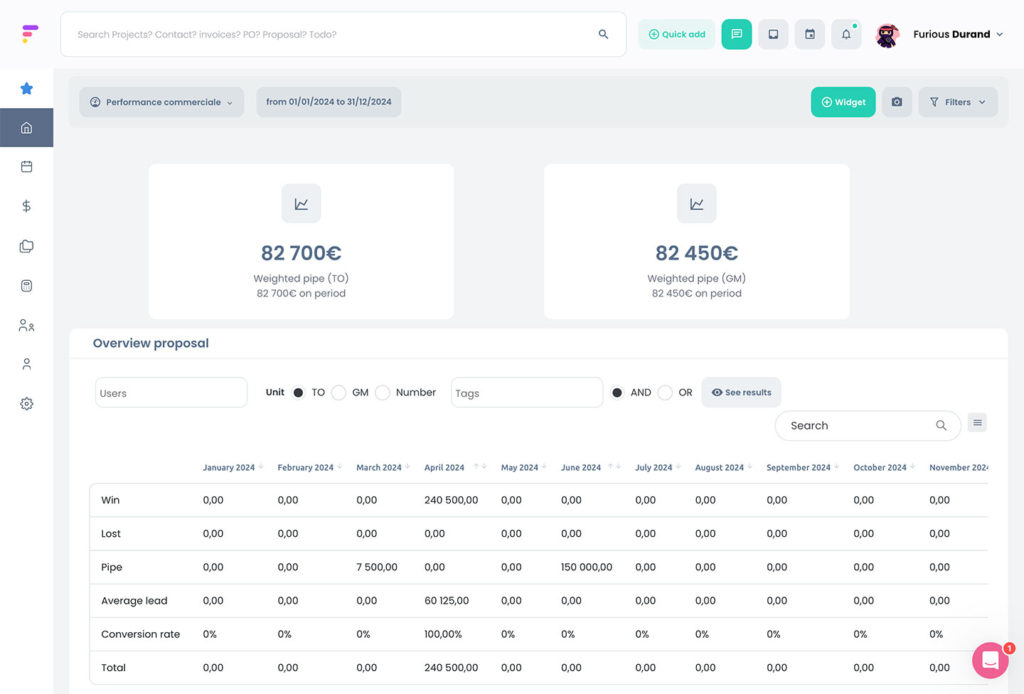
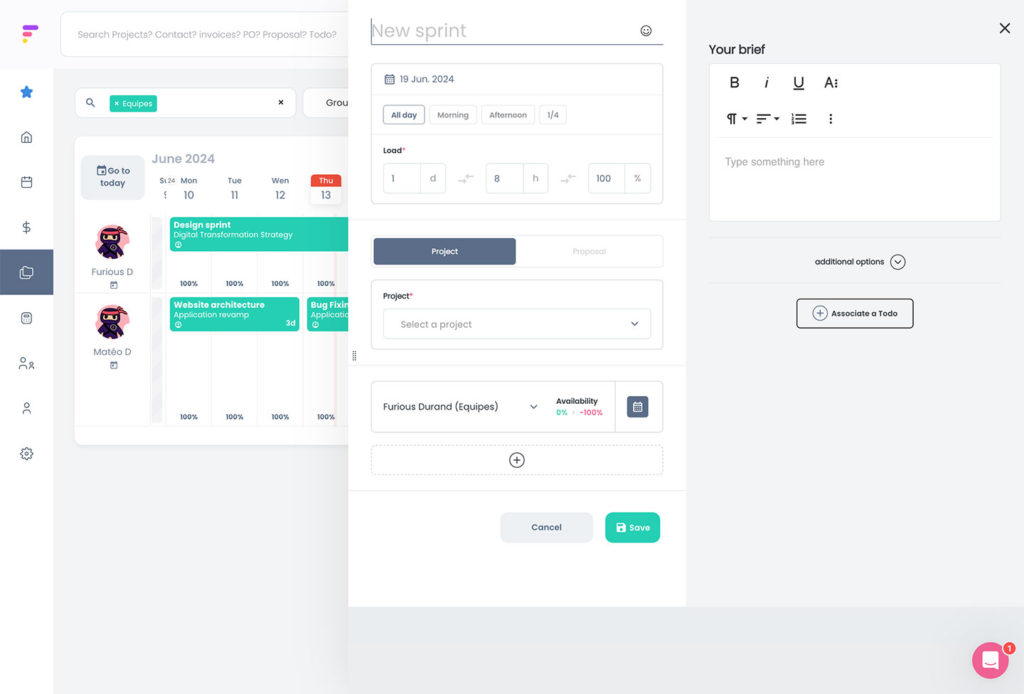
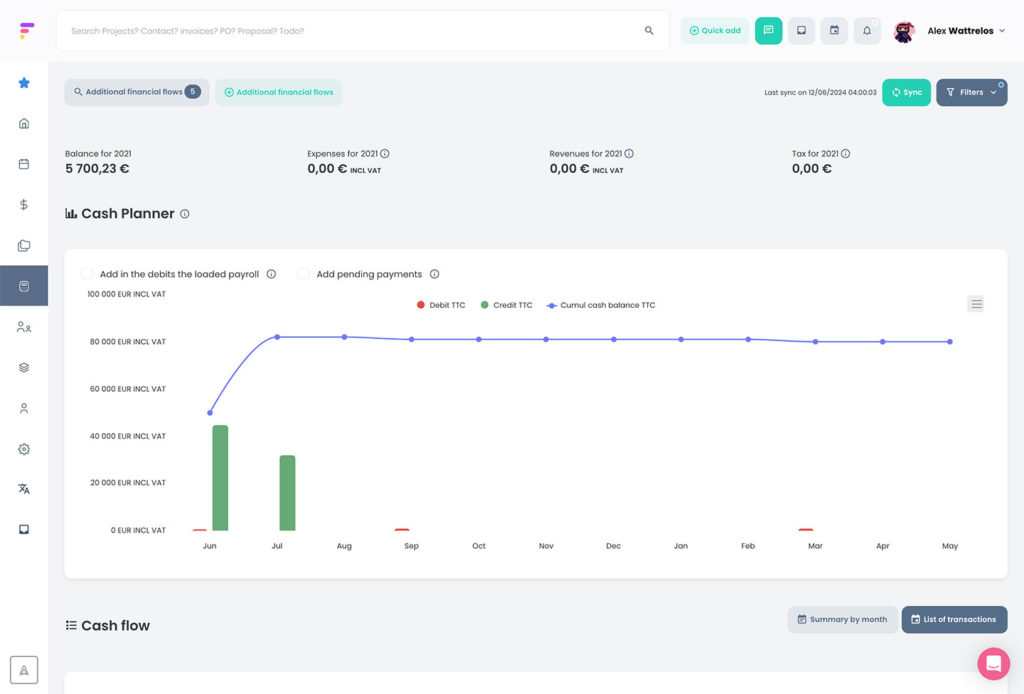
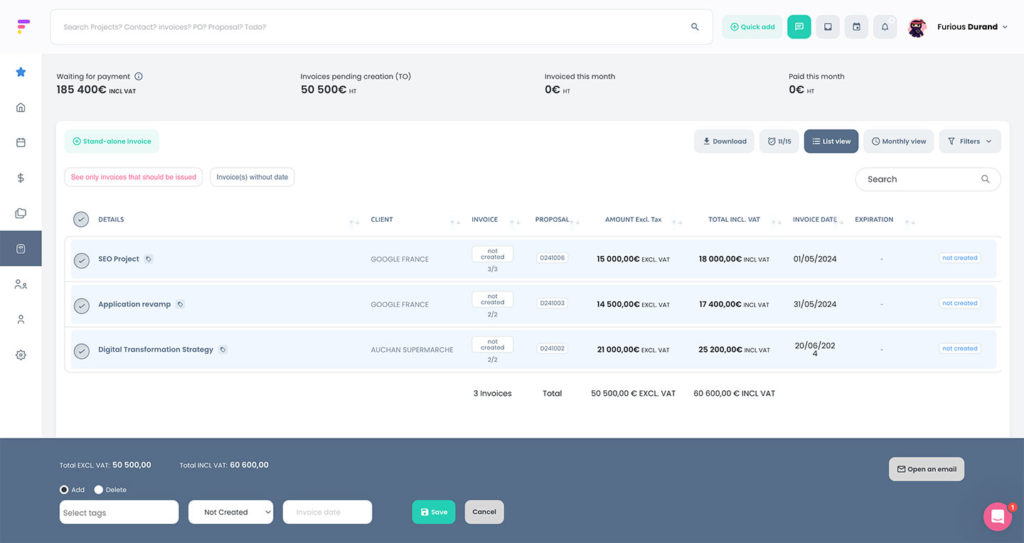
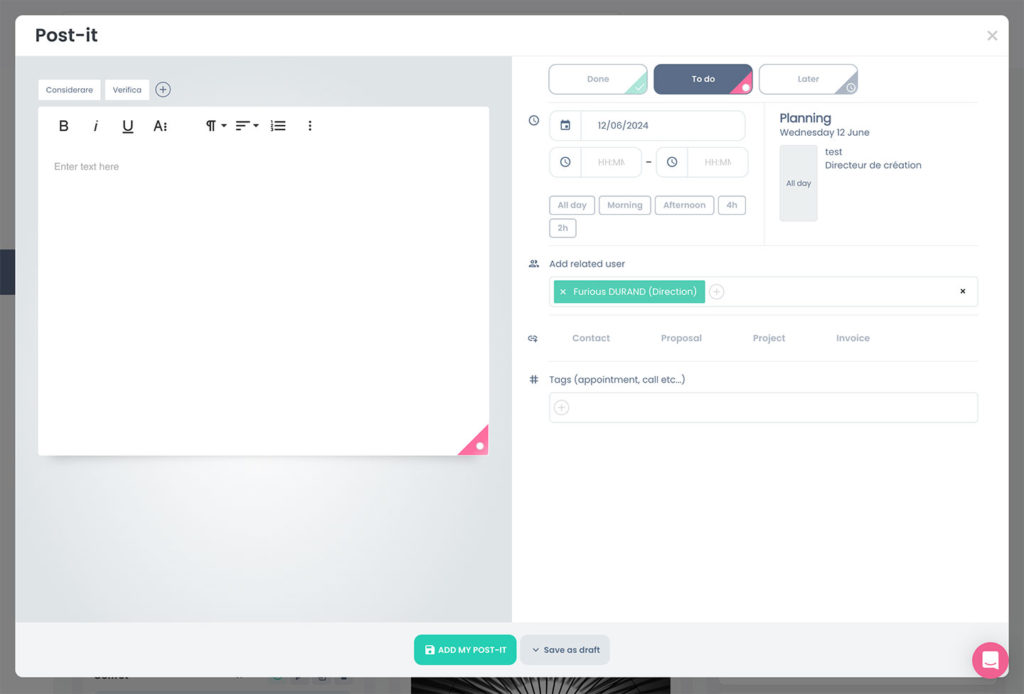
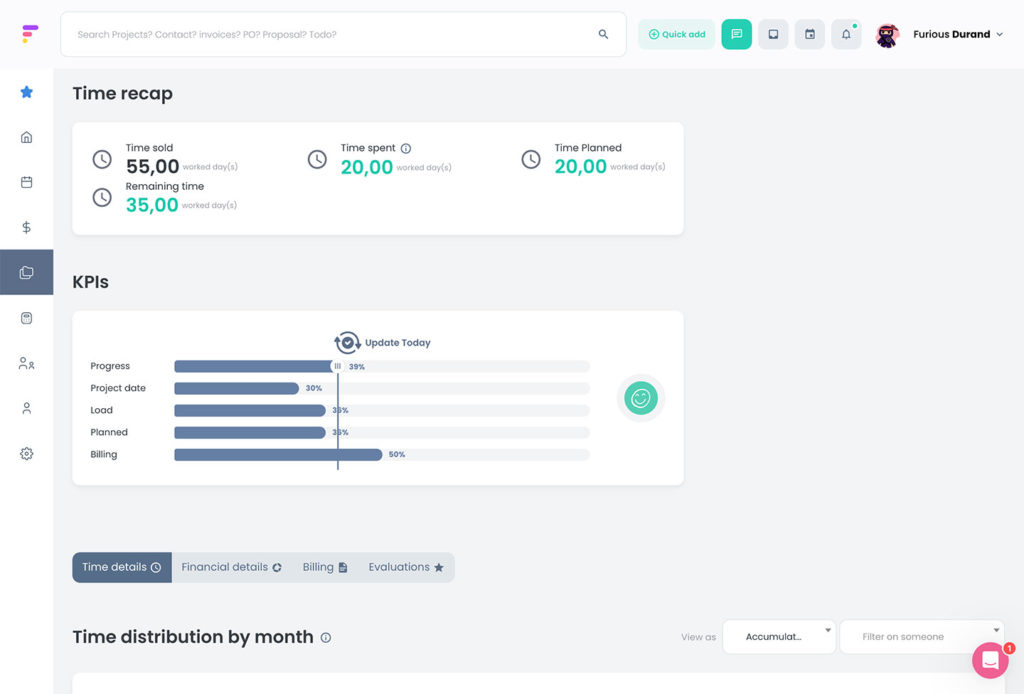


Decisions informed by AI
- More intelligence, everywhere
Our clients
speak about

Alexandre Vernier
CEO, ODW agency
Thanks to the KPIs provided by Furious, we finally have complete visibility on our projects and resources. Decisions are now based on reliable data.

Cédric Morel
CEO, HULA HOOP agency
Thanks to Furious, our growth is better organized. We can manage and plan our teams across different structures and locations, from Montreal to Nantes. It is an essential tool for tracking and supporting our remote expansion.
A myriad of integrations & automations available
Wordpress
Teams
Slack
AWS
Github
Are you wondering ?
What will my year-end results look like?
With Furious, you can track your annual financial performance in real time, integrating gross margin, production and sales. All your input data (sales pipe, projects sold, vacations, absences, production delays, etc.) are taken into account, enabling you to manage your forecasts efficiently.
How do I measure the time spent on my projects?
Whatever your organization, Furious offers tools to automate time planning, track hours spent and predict the impact on the profitability of your projects.
Do I need several tools to manage my business?
Large, well-structured agencies use a single tool to optimize their management. Opting for Furious from the outset will save you the time and hassle of having to deal with multiple software packages. Simplify your work with an efficient all-in-one.
https://www.furious-squad.com/multipliez-vous-les-outils-metiers-pour-gerer-votre-agence/
Book an appointment
with an expert
We have many more surprises
for you, let’s talk about it!





